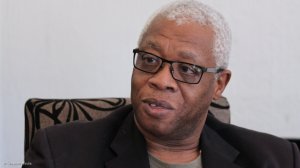This month we are celebrating the centenary of the birth of Nelson Mandela. I suspect that the country will celebrate more the older Mandela than the young hothead of a militant who became a commander in the armed struggle against white minority rule.
To me, the commemoration of the centenary of Madiba’s birth represents the thin line between celebration and mourning. What will be remembered the most is what many South Africans – particularly those who were victims of apartheid colonialism – are mourning about what the African National Congress (ANC) has become. The values that Madiba embodied at the time of his death – selflessness, integrity, moral courage and servant leadership – have sought refuge in the heart of many a disappointed South African as leaders of the ANC continue to propitiate the false gods of corruption, patronage, sycophancy, avarice and factional greed. Like a wolf that wears a sheep’s skin to hide its true nature, the ANC will wear Madiba shirts to conceal the mutations it has undergone in its nature and character. Because the ignominy of Jacob Zuma’s reign is behind us, it is the Thuma Mina brigade of another new dawn that will be wearing the ill-fitting Madiba shirts and will, like the truest of disciples, shout the name of Madiba to drown out the groans and cries of despair of a paradise found . . . and lost.
In December 2017, paradise was found again when Cyril Ramaphosa became the president of the ruling party. For many inside and outside the ANC, the election of Ramaphosa as head of State in February was the Second Coming – the second coming of Madiba. In his first 100 days, Ramaphosa was expected to vanquish the ravages of almost a decade of the institutional, political and policy uncertainty of the Zuma moment. A tall order indeed. Madiba was a very tall man – a colossus in the eyes of many – but even he was not that tall. Ramaphosa is certainly not that tall.
It is therefore not surprising that the Ramaphoria Index is falling. Because he was credited for achievements that were not of his making, Ramaphosa is now being blamed for things that are not his fault. There is a very thin line between hysterical optimism and hysterical pessimism.
What is the problem?
It is still my contention that Ramaphosa should have waited until 2019 to take up the position of head of State. My fear has always been that his limitations will show too soon before the 2019 general election. Ostensibly, Ramaphosa had to ascend to the throne much sooner because the imperative was to boost confidence among investors, ratings agencies and the markets. In reality, however, there are interests in our economy that were not prepared to wait for the proceeds of the Nasrec conference. Inside the ANC, there are interests that were not prepared to wait for the benefits of the changing of the guard. Unfortunately, the indecent alacrity with which these interests wanted to become the ventriloquist’s hand, may become a storm that washes away the new dawn of the Thuma Mina moment. The problem lies precisely in the fact that these interests could not wait to send Ramaphosa on economic and political errands and he, in turn, said: “Thuma mina (send me).”
Another problem is a challenge that comes with the position of ANC deputy president. Ordinarily, this position must be a consequence, product or function of succession planning. In turn, succession planning, if it is successful, must rely on different layers of depth in the quality of individuals who have the experience, knowledge, capacity, talent and potential morality to provide effective leadership to the leadership collective and the organisation as a whole. In the absence of effective succession planning, and because of the vicissitudes of factional politics, the search for a deputy president becomes a game of chance. In this context, the leadership of the party may not come from the brightest and most capable among its members. It may come from the most ambitious, pliable and avaricious. It may even come from the most cowardly and lacking in political courage. In short, the president of the party may be a person who cannot and must never be accused of being presidential material.
I suspect, though, that this is not the problem with Ramaphosa. The problem with Ramaphosa is that he became president after his window of opportunity had closed. Madiba wanted Ramaphosa to succeed him as president of the ANC and the republic. If the ancestors had granted Madiba his wish, Ramaphosa would have been inaugurated after the 1999 general election. At the 1997 Mafikeng conference, Madiba gave a speech which sounded as ironic as Mark Antony’s oration at the funeral of Julius Caesar. Perhaps, it was a warning about his successor.
This is not Ramaphosa’s moment.
Edited by: Martin Zhuwakinyu
Creamer Media Senior Deputy Editor
EMAIL THIS ARTICLE SAVE THIS ARTICLE
ARTICLE ENQUIRY
To subscribe email subscriptions@creamermedia.co.za or click here
To advertise email advertising@creamermedia.co.za or click here












